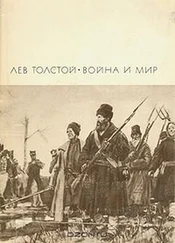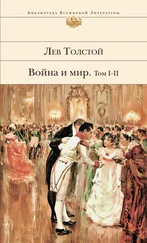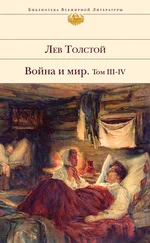| A drummer, their leader, turned round facing the singers, and flourishing his arm, began a long-drawn-out soldiers' song, commencing with the words: |
Барабанщик-запевало обернулся лицом к песенникам, и, махнув рукой, затянул протяжную солдатскую песню, начинавшуюся: |
| "Morning dawned, the sun was rising," and concluding: |
"Не заря ли, солнышко занимал ося..." и кончавшуюся словами: |
| "On then, brothers, on to glory, led by Father Kamenski." This song had been composed in the Turkish campaign and now being sung in Austria, the only change being that the words |
"То-то, братцы, будет слава нам с Каменскиим отцом..." Песня эта была сложена в Турции и пелась теперь в Австрии, только с тем изменением, что на место |
| "Father Kamenski" were replaced by |
"Каменскиим отцом" вставляли слова: |
| "Father Kutuzov." |
"Кутузовым отцом". |
| Having jerked out these last words as soldiers do and waved his arms as if flinging something to the ground, the drummer-a lean, handsome soldier of forty-looked sternly at the singers and screwed up his eyes. |
Оторвав по-солдатски эти последние слова и махнув руками, как будто он бросал что-то на землю, барабанщик, сухой и красивый солдат лет сорока, строго оглянул солдат-песенников и зажмурился. |
| Then having satisfied himself that all eyes were fixed on him, he raised both arms as if carefully lifting some invisible but precious object above his head and, holding it there for some seconds, suddenly flung it down and began: |
Потом, убедившись, что все глаза устремлены на него, он как будто осторожно приподнял обеими руками какую-то невидимую, драгоценную вещь над головой, подержал ее так несколько секунд и вдруг отчаянно бросил ее: |
| "Oh, my bower, oh, my bower...!" |
Ах, вы, сени мои, сени! |
| "Oh, my bower new...!" chimed in twenty voices, and the castanet player, in spite of the burden of his equipment, rushed out to the front and, walking backwards before the company, jerked his shoulders and flourished his castanets as if threatening someone. |
"Сени новые мои...", подхватили двадцать голосов, и ложечник, несмотря на тяжесть амуниции, резво выскочил вперед и пошел задом перед ротой, пошевеливая плечами и угрожая кому-то ложками. |
| The soldiers, swinging their arms and keeping time spontaneously, marched with long steps. |
Солдаты, в такт песни размахивая руками, шли просторным шагом, невольно попадая в ногу. |
| Behind the company the sound of wheels, the creaking of springs, and the tramp of horses' hoofs were heard. |
Сзади роты послышались звуки колес, похрускиванье рессор и топот лошадей. |
| Kutuzov and his suite were returning to the town. |
Кутузов со свитой возвращался в город. |
| The commander in chief made a sign that the men should continue to march at ease, and he and all his suite showed pleasure at the sound of the singing and the sight of the dancing soldier and the gay and smartly marching men. |
Главнокомандующий дал знак, чтобы люди продолжали итти вольно, и на его лице и на всех лицах его свиты выразилось удовольствие при звуках песни, при виде пляшущего солдата и весело и бойко идущих солдат роты. |
| In the second file from the right flank, beside which the carriage passed the company, a blue-eyed soldier involuntarily attracted notice. It was Dolokhov marching with particular grace and boldness in time to the song and looking at those driving past as if he pitied all who were not at that moment marching with the company. |
Во втором ряду, с правого фланга, с которого коляска обгоняла роты, невольно бросался в глаза голубоглазый солдат, Долохов, который особенно бойко и грациозно шел в такт песни и глядел на лица проезжающих с таким выражением, как будто он жалел всех, кто не шел в это время с ротой. |
| The hussar cornet of Kutuzov's suite who had mimicked the regimental commander, fell back from the carriage and rode up to Dolokhov. |
Гусарский корнет из свиты Кутузова, передразнивавший полкового командира, отстал от коляски и подъехал к Долохову. |
| Hussar cornet Zherkov had at one time, in Petersburg, belonged to the wild set led by Dolokhov. |
Гусарский корнет Жерков одно время в Петербурге принадлежал к тому буйному обществу, которым руководил Долохов. |
| Zherkov had met Dolokhov abroad as a private and had not seen fit to recognize him. |
За границей Жерков встретил Долохова солдатом, но не счел нужным узнать его. |
| But now that Kutuzov had spoken to the gentleman ranker, he addressed him with the cordiality of an old friend. |
Теперь, после разговора Кутузова с разжалованным, он с радостью старого друга обратился к нему: |
| "My dear fellow, how are you?" said he through the singing, making his horse keep pace with the company. |
- Друг сердечный, ты как? - сказал он при звуках песни, ровняя шаг своей лошади с шагом роты. |
| "How am I?" Dolokhov answered coldly. "I am as you see." |
- Я как? - отвечал холодно Долохов, - как видишь. |
| The lively song gave a special flavor to the tone of free and easy gaiety with which Zherkov spoke, and to the intentional coldness of Dolokhov's reply. |
Бойкая песня придавала особенное значение тону развязной веселости, с которой говорил Жерков, и умышленной холодности ответов Долохова. |
| "And how do you get on with the officers?" inquired Zherkov. |
- Ну, как ладишь с начальством? - спросил Жерков. |
| "All right. They are good fellows. |
- Ничего, хорошие люди. |
| And how have you wriggled onto the staff?" |
Ты как в штаб затесался? |
| "I was attached; I'm on duty." |
- Прикомандирован, дежурю. |
| Both were silent. |
Они помолчали. |
| "She let the hawk fly upward from her wide right sleeve," went the song, arousing an involuntary sensation of courage and cheerfulness. |
"Выпускала сокола да из правого рукава", говорила песня, невольно возбуждая бодрое, веселое чувство. |
| Their conversation would probably have been different but for the effect of that song. |
Разговор их, вероятно, был бы другой, ежели бы они говорили не при звуках песни. |
| "Is it true that Austrians have been beaten?" asked Dolokhov. |
- Что правда, австрийцев побили? - спросил Долохов. |
| "The devil only knows! They say so." |
- А чорт их знает, говорят. |
| "I'm glad," answered Dolokhov briefly and clearly, as the song demanded. |
- Я рад,- отвечал Долохов коротко и ясно, как того требовала песня. |
| "I say, come round some evening and we'll have a game of faro!" said Zherkov. |
- Что ж, приходи к нам когда вечерком, фараон заложишь, - сказал Жерков. |
| "Why, have you too much money?" |
- Или у вас денег много завелось? |
| "Do come." |
- Приходи. |
| "I can't. |
- Нельзя. |
| I've sworn not to. |
Зарок дал. |
| I won't drink and won't play till I get reinstated." |
Не пью и не играю, пока не произведут. |



